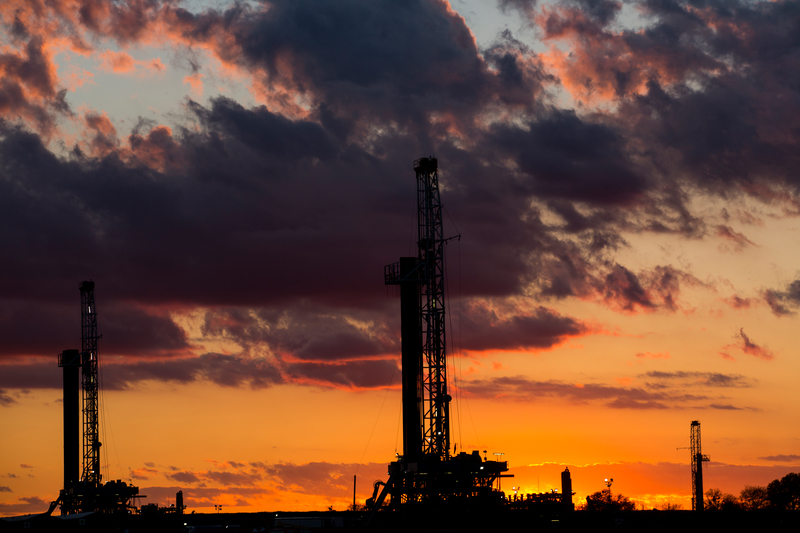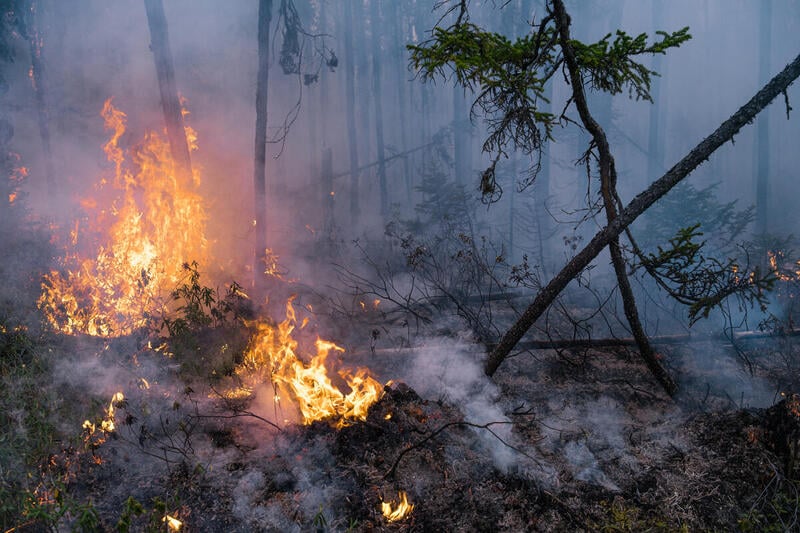Toronto — In the most comprehensive assessment of climate impacts yet, the Intergovernmental Panel on Climate Change’s (IPCC) Working Group II report delivered their latest scientific assessment to world governments today.
Focusing on impacts, adaptation and vulnerability, the report lays out, in sobering detail, how severe the impacts of climate change already are, causing widespread losses and damages to people and ecosystems around the world, projected to escalate with every bit of further warming.
Alex Speers-Roesch, Climate Policy Analyst, Greenpeace Canada said:
“Climate change impacts have already caused major loss and damage to people and nature, and Canada is no exception with the recent deadly heat waves, forest fires and floods that have hit our country. This report must be an electrifying wake up call for all governments, including that of Justin Trudeau, to stop approving oil and gas projects and instead accelerate the phase out of fossil fuels and implement more ambitious climate plans aligned with the science.”
Kaisa Kosonen, Senior Policy Advisor, Greenpeace Nordic said:
“The report makes very painful reading. But only by facing these facts head on, with brutal honesty, can we find solutions that match the scale of the interconnected challenges.
“It’s all hands on deck now! We need to do everything faster and bolder, at all levels, and leave no one behind. The rights and needs of those in most vulnerable conditions must be placed at the heart and center of climate action. This is the moment to rise up, be bold and think big.”
Since the previous assessment, climate risks are appearing faster and will get more severe sooner. The IPCC finds that mortality from floods, drought and storms was a staggering 15 times higher in highly vulnerable regions during the last decade, compared to regions with very low vulnerability. The report also acknowledges the crucial importance of fighting the interconnected climate and nature crisis together. Only by protecting and restoring ecosystems can we build their resilience towards warming, and protect all their services human well-being depends on.
The report will define climate politics, whether leaders want it or not. Last year in Glasgow at the UN climate summit, governments admitted they’re not doing nearly enough to meet the Paris Climate Agreement 1.5°C warming limit, agreeing to revisit their national targets by the end of 2022. The next climate summit, COP27 in Egypt later this year, is where countries will have to also address today’s updated IPCC findings on the growing gap on adaptation, on loss and damage, and deep injustices.
The Working Group II contribution to the IPCC Sixth Assessment will be followed by the contribution of the Working Group III in April, which will assess ways to mitigate climate change. The full story of the IPCC Sixth Assessment Report will then be brought together by the Synthesis Report in October.
Highlights from the report:
- The cumulative scientific evidence is unequivocal: Climate change is a threat to human well-being and planetary health. Any further delay in concerted anticipatory global action on adaptation and mitigation will miss a brief and rapidly closing window of opportunity to secure a liveable and sustainable future for all.
- The extent and magnitude of impacts to ecosystems are larger than estimated in previous assessments. Climate change has caused substantial damages, and increasingly irreversible losses, in terrestrial freshwater and coastal and open ocean marine ecosystems.
- Roughly half of the world’s population currently experience severe water scarcity for at least some part of the year due to climate change interacting with other drivers.
For North America, the key risks include:
- Climate-sensitive mental health outcomes, human mortality and morbidity due to increasing average temperature, weather and climate extremes, and compound climate hazards.
- Risk of degradation of marine, coastal and terrestrial ecosystems, including loss of biodiversity, function, and protective services.
- Risk to freshwater resources with consequences for ecosystems, reduced surface water availability for irrigated agriculture, other human uses, and degraded water quality.
- Risk to food and nutritional security through changes in agriculture, livestock, hunting, fisheries, and aquaculture productivity and access.
- Risks to well-being, livelihoods and economic activities from cascading and compounding climate hazards, including risks to coastal cities, settlements and infrastructure from sea-level rise.
ENDS
Key Takeaways from the WG II Report
Images: Images and videos of climate change impacts are available from the Greenpeace Media Library.
Contact:
Brandon Wei, Communications Officer, Greenpeace Canada
[email protected], +1 778 772-6138
Alex Speers-Roesch, Climate Policy Analyst, Greenpeace Canada
[email protected], +1 416 807-4955
Gaby Flores, Communications Coordinator, Greenpeace International
[email protected], +1 214 454 3871



